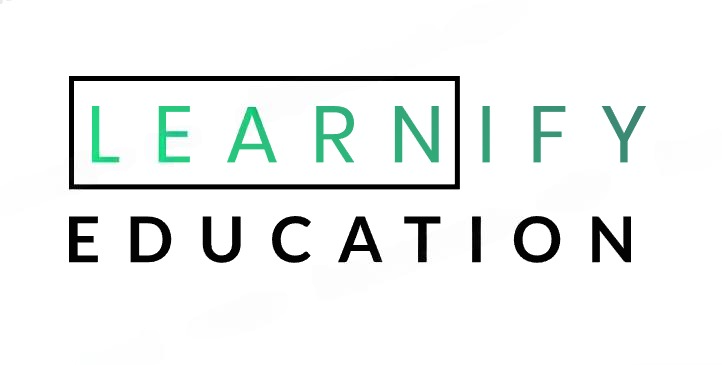Financial Accounting
by T.S. Grewal – A comprehensive guide on basic and advanced accounting principles.













The Bachelor of Commerce (B.Com) online course offers flexibility and accessibility, allowing students to gain comprehensive knowledge in commerce and business from anywhere in the world. This degree covers key subjects like accounting, finance, marketing, and management, preparing students for a wide range of career opportunities. With an online B.Com, students can study at their own pace, balancing their education with personal and professional commitments, and saving on costs related to commuting and accommodation.
| Pros | Description |
|---|---|
| Flexibility | Study at your convenience, balancing education with other commitments. |
| Cost-Effective | Save on commuting and accommodation expenses, and benefit from lower tuition fees. |
| Accessibility | Access quality education from anywhere in the world, with diverse online resources. |
| Work-Life Balance | Suitable for working professionals and those with personal commitments, offering a flexible schedule. |
| Specializations | Choose from a variety of specializations to tailor your education to your career aspirations. |
| Type | Description |
|---|---|
| B.Com General | Provides a broad-based education in commerce without focusing on any particular specialization. |
| B.Com Honours | Offers in-depth study in a specific area of commerce, often considered more prestigious. |
| B.Com Professional | Focuses on professional skills and certifications, preparing students for specific careers. |
| B.Com with Specialization | Includes focused areas such as Accounting, Finance, Marketing, and more, catering to specific career goals. |
| Reason | Description |
|---|---|
| Convenience | Study without geographical limitations, offering global access to education. |
| Balanced Learning | Manage work, study, and personal life effectively with flexible schedules. |
| Cost-Effective | Save on commuting and accommodation expenses, making it an economical choice. |
| Diverse Opportunities | Access various industries and roles upon graduation, from accounting to marketing. |
| Skill Development | Gain practical skills that are in demand in the job market, such as analytical and management skills. |
| Technology Integration | Enhance learning with interactive digital tools and resources. |
| Customizable Learning Paths | Tailor your courses to fit your career goals and interests. |
| Networking Opportunities | Connect with peers and professionals globally through online platforms and forums. |
| Updated Curriculum | Stay current with industry trends and practices through regularly updated course materials. |
| Work Experience | Continue gaining work experience while studying, enhancing practical knowledge. |
| Year | Subjects |
|---|---|
| Year 1 |
|
| Year 2 |
|
| Year 3 |
|
| Subject | Description |
|---|---|
| Financial Accounting | Introduction to accounting principles, financial statements, and accounting cycles. |
| Business Communication | Techniques for effective communication in business settings, including writing and presentations. |
| Business Mathematics | Mathematical techniques used in business, including algebra, statistics, and financial mathematics. |
| Microeconomics | Study of individual and firm-level economic behavior, market structures, and pricing. |
| Business Environment | Overview of the business environment, including economic, social, and legal factors. |
| Subject | Description |
|---|---|
| Corporate Accounting | Advanced accounting practices for corporations, including financial reporting and analysis. |
| Business Laws | Legal aspects of business, including contracts, company laws, and regulatory frameworks. |
| Macroeconomics | Examination of economy-wide phenomena, including national income, inflation, and economic growth. |
| Management Principles | Basics of planning, organizing, leading, and controlling. |
| Cost Accounting | Methods for cost determination, cost control, and cost analysis in business. |
| Subject | Description |
|---|---|
| Auditing | Principles and practices of auditing, including internal controls and audit processes. |
| Financial Management | Techniques for managing financial resources, including budgeting, forecasting, and investment analysis. |
| Marketing Management | Strategies and practices in marketing, including market research, product development, and promotion. |
| Human Resource Management | Principles of HR management, including recruitment, training, performance management, and employee relations. |
| International Business | Study of global business practices, trade policies, and international market dynamics. |
| College | Eligibility | Admission Procedure |
|---|---|---|
| Jain University | 10+2 or equivalent from a recognized board | Online application, submission of documents |
| Amity University Online | 10+2 or equivalent from a recognized board | Online application, document verification, payment |
| Online Manipal | 10+2 or equivalent from a recognized board | Online application, document submission, counseling |
| IGNOU | 10+2 or equivalent from a recognized board | Online application, submission of documents |
| Lovely Professional University (LPU) | 10+2 or equivalent from a recognized board | Online application, document verification, payment |
| University of Mysore | 10+2 or equivalent from a recognized board | Online application, document submission |
| Skill | Description |
|---|---|
| Accounting Skills | Understanding of financial statements, bookkeeping, and accounting principles. |
| Analytical Skills | Ability to analyze data, interpret financial information, and make informed decisions. |
| Communication Skills | Effective verbal and written communication for reporting, presentations, and teamwork. |
| Numerical Skills | Proficiency in handling and interpreting numerical data, including calculations and statistics. |
| Attention to Detail | Precision in data entry, financial reporting, and compliance with regulations. |
| Time Management | Efficiently managing time to balance multiple tasks, deadlines, and priorities. |
| Problem-Solving Skills | Identifying issues and developing practical solutions, especially in financial contexts. |
| IT Skills | Familiarity with accounting software, spreadsheets, and other business tools. |
| Organizational Skills | Ability to organize and manage financial records, documents, and reports. |
| Critical Thinking | Evaluating information and making reasoned judgments or decisions based on evidence. |


Financial Accounting
by T.S. Grewal – A comprehensive guide on basic and advanced accounting principles.
Advanced Accountancy
by M.C. Shukla, T.S. Grewal, and S.C. Gupta – Detailed coverage of advanced accounting topics.
Business Law
by M.C. Kuchhal – Explains key business laws and regulations.
Business Law: Text and Cases
by Kenneth W. Clarkson, Roger LeRoy Miller, and Frank B. Cross – Covers essential business law principles with case studies.
Macroeconomics
by N. Gregory Mankiw – Provides a fundamental understanding of macroeconomic theories and practices.
Macroeconomics
by Rudiger Dornbusch, Stanley Fischer, and Richard Startz – Offers insights into macroeconomic policy and theory.
Principles of Management
by Stephen P. Robbins and Mary Coulter – Outlines essential management concepts and practices.
Management: Tasks, Responsibilities, Practices
by Peter F. Drucker – A classic on management theories and techniques.
Cost Accounting: A Managerial Emphasis
by Charles T. Horngren, Srikant M. Datar, and George Foster – Covers cost accounting methods and their application in business management.
Cost Accounting
by M.N. Arora – A comprehensive textbook on cost accounting principles and practices.
Corporate Accounting
by S.P. Jain and K.L. Narang – Detailed guide on corporate accounting practices.
Corporate Accounting
by J.B. Gupta – Provides an in-depth look at corporate accounting standards and regulations.
Auditing and Assurance Services
by Alvin A. Arens, Randal J. Elder, and Mark S. Beasley – Covers auditing standards, procedures, and practices.
Principles of Auditing
by Ray Whittington and Kurt Pany – Detailed exploration of auditing principles and techniques.
Financial Management: Theory and Practice
by Eugene F. Brigham and Michael C. Ehrhardt – Focuses on financial management strategies and practices.
Essentials of Financial Management
by Eugene F. Brigham and Joel F. Houston – Provides a concise overview of financial management concepts.
Marketing Managemen
by Philip Kotler and Kevin Lane Keller – Comprehensive guide on marketing strategies and practices.
Principles of Marketing
by Philip Kotler and Gary Armstrong – Outlines fundamental marketing principles and techniques.
Human Resource Management:
by Gary Dessler – Discusses key HR management concepts and practices.
Human Resource Management: A Contemporary Approach
by Ian Beardwell and Len Holden – Provides insights into modern HR management practices













